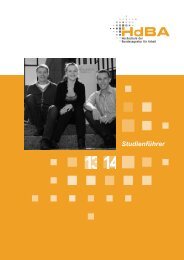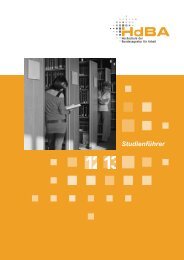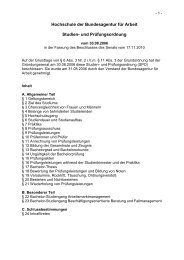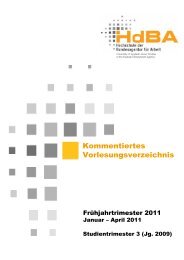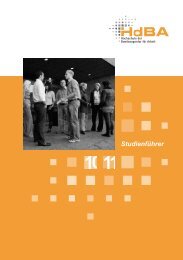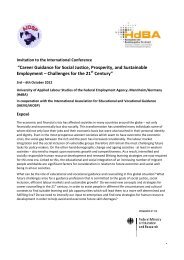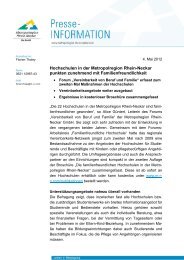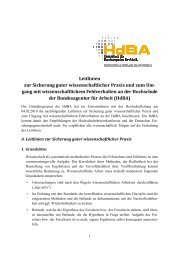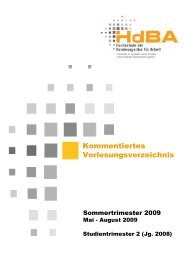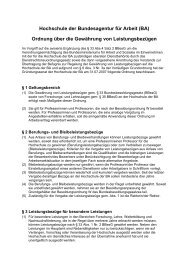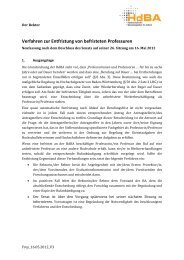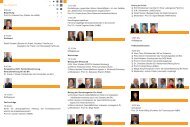Brain Drain - Hochschule der Bundesagentur für Arbeit
Brain Drain - Hochschule der Bundesagentur für Arbeit
Brain Drain - Hochschule der Bundesagentur für Arbeit
Create successful ePaper yourself
Turn your PDF publications into a flip-book with our unique Google optimized e-Paper software.
���������������������������������������������������<br />
���������������������������������������<br />
�<br />
�<br />
5. Course 5: Multicultural Context of Ability Measurement and Interest<br />
Assessment<br />
.Assessment includes the use of various techniques to make an evaluation; as has<br />
already become clear multicultural assessment refers to the cultural context in which<br />
the assessment is conducted, namely, the one in which people of differing cultures<br />
interacts. Although many of the measures most widely used have established<br />
reliability and validity only within White racial samples, these measures often are<br />
used inappropriately and unethically with populations from different cultures.<br />
5.1 Learning objectives<br />
• Counsellors un<strong>der</strong>stand standards for educational and psychological testing in<br />
different cultural backgrounds on BD-BG level. (TAX3 - foundation competences)<br />
• Counsellors possess working experience and intercultural sensitivity in<br />
transnational career counselling and assessment related to the life span. (TAX 4 –<br />
client-interaction competences)<br />
• Counsellors are able to adapt tests and other diagnostic instruments to BD-BG<br />
counselling on a professional level. (TAX 4 – foundation competences, clientinteraction<br />
competences)<br />
5.2 Unit 1: More Common Misuses of Assessments in Multicultural<br />
Contexts<br />
1. "Assuming that labelling something solves the problem." Sedlacek (in press,<br />
a) has called this the "Quest for the Golden Label" problem. Using new terms (e.g.,<br />
multicultural, diversity) does not mean we are doing anything operationally different<br />
with our measures. Westbrook and Sedlacek (1991) found that although labels for<br />
non-traditional populations had changed over forty years, the groups being discussed<br />
were still those without power who were being discriminated against in the system.<br />
2. "Using measures normed on White populations to assess non-White<br />
people." Sedlacek (in press, a) discussed what he called the "Three Musketeers"<br />
problem, namely that developing a single measure with equal validity for all is often<br />
the goal of test developers. However, if different people have different cultural and<br />
racial experiences and present their abilities differently, it is unlikely that a single<br />
measure could be developed that would work equally well for all.<br />
3. "Ignoring the cultural assumptions that go into the creation of assessment<br />
devices." Helms (1992) argued that cognitive ability measures are commonly<br />
developed from an unacknowledged Eurocentric perspective. Until there is more<br />
thought given to the context in which tests are developed, work comparing different<br />
racial and cultural groups using those measures will be spurious.<br />
152




